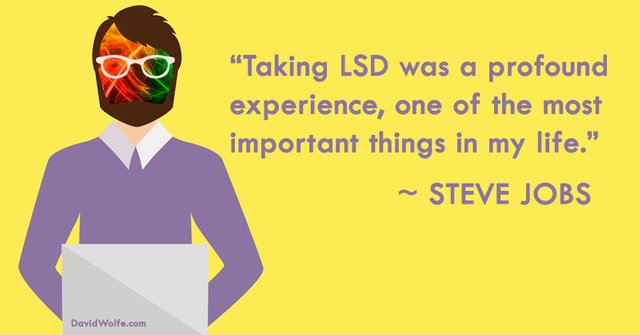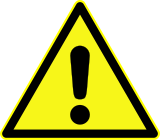Silicon Valley celebrates Bicycle Day- The Valley professionals "LSD Microdosing Experiment"

(www.davidwolfe.com)
(www.businessinsider.com)- Business Insider
Silicon Valley's LSD habit is exploding, and now a 27-year old is offering how-to tutorials over Skype
by Erin Brodwin
Microdosing involves taking tiny, "sub-perceptual" doses of LSD or another psychedelic for 6-8 months
Paul Austin is offering online consultations on how to do it for $127
His website, The Third Wave, also offers an online course on microdosing
No scientific study of microdosing currently exists, although there is a renewed interest on research involving full doses of psychedelics
Paul Austin's favorite way to open a TED talk is by telling his audience that he took LSD that day.
Austin, 27, bills himself as a professional microdosing coach. After personally experimenting with the regimen — which involves taking tiny, "sub-perceptual" doses of LSD or another psychedelic for up to 7 months — Austin said he was inspired to share what he learned with the world. He now offers 30-minute Skype microdosing "consulting" sessions for $127 through his website, The Third Wave.
Austin only has a handful of Skype clients at the moment, but he also advertises an online microdosing course that has enrolled close to 300 people since launching a few months ago.
The interest isn't surprising; LSD microdosing has emerged as Silicon Valley's favorite illegal drug habit, with engineers, programmers, writers, and artists sharing their stories of the practice in numerous blogs and outlets, including the New York Times. Many people say it improves their concentration or creativity; others say they use it to help treat symptoms of mental illnesses like depression and anxiety.
Yet not a single published scientific study on microdosing exists. There are many unanswered questions about the practice, from how it effects the brain over the long-term to whether it produces any negative side-effects.
"People are like, 'Yeah microdosing!' But in reality there is not a single controlled trial ever on this yet. So whether it's helpful or hurtful we don't know," New York University psychiatrist Stephen Ross, who is currently involved in a series of unpublished preliminary studies on LSD and microdosing, told Business Insider.
Austin, whose LinkedIn bio reads "psychedelic visionary" and whose Twitter handle is @PaulAustinMD, is not a scientist or a doctor. Nevertheless, Austin, who has a bachelor's degree is in business management, said he feels confident spreading the word about psychedelics.
"I’m trying to find answers to the questions that people are asking where the clinical research is lacking," Austin told Business Insider. "The problem is the research is so expensive and the stuff that does come out won’t really provide a lot of the answers people are looking for."
From personal experiment to public resource
night starry sky milky way galaxy illustration shutterstock
Shutterstock
In the summer of 2015, Austin began taking minute amounts of LSD twice a week. He said the practice, which he kept up for 7 months, fundamentally altered his personality and outlook on life.
"I noticed it was easier for me to connect with people and engage, and when I was working on projects a lot of times when I was waking up in the morning [before starting to microdose] there'd be this built-in resistance to creativity. When I was microdosing that wasn't there — I just wanted to dig into it," Austin said.
For several years before that, Austin had been struggling emotionally. He felt like he couldn't connect with people; his work was suffering too.
"Throughout my life I’ve struggled with social anxiety; a lot of times when I'm with people I’m stuck in my head and not engaged or involved," Austin said. "I was also having a lot of trouble focusing at work."
It was around that time that Austin came across Stanford psychologist James Fadiman's book, "The Psychedelic Explorer's Guide," which included a protocol for microdosing LSD. He began cutting off tiny pieces of LSD blotter paper, placing them in water overnight, and using a dropper to ingest roughly a single milliliter of the liquid at a time. These levels are intended to be "sub-perceptual;" too small to cause a trip, but large enough to affect thinking and creativity.
The changes to Austin's personality weren't immediate. Instead, they began to surface over the course of several weeks, as people around him started to notice an ever-so-slight difference in his presence.
"Friends would make these small comments mostly about things like me being more empathetic or more open," Austin said. He frequently shared his experience with others, preferring to keep the practice completely transparent to the people around him.
"I’d also get comments from people I’d known from a long time ago who I'd then meet years later and they’d say, 'Hey Paul are you microdosing today?' and I'd say, 'Nope I’m just evolving. This is how I’ve changed over time,'" Austin said. "There are significant changes. I often compare it to meditation."
The Third Wave is imbued with Austin's personal experience. On the website — where readers can find everything from infographics on how to microdose LSD (and other psychedelics including magic mushrooms) to so-called "Ultimate Guides" on psychedelics from ayahuasca to MDMA and peyote — Austin has included snippets of his own day-to-day experience with the drugs.
"Around 8:00 a.m., right after a quick morning shower, I walk over to my personal supply of psychedelics, where my microdose of LSD waits," reads one guide.
The guides include information on each drug's history, effects, and legality. There's also a microdosing course which includes a walkthrough of a "typical" microdosing day, a guide on how to microdose for creativity, and "thoughts on the balance between microdoses and macrodoses and how to combine them for unbelievable breakthroughs." By enrolling in the course, the website claims, clients will "come to a more nuanced understanding of the legality around microdosing ... including specific loopholes depending on the jurisdiction you live in."
The course also includes a microdosing kit, which comes with a bottle of distilled water, a testing kit "to make sure you've got the real thing," a pair of scissors and latex gloves, and a syringe. (It doesn't include any LSD, which remains a Schedule I substance in the US, meaning it has no currently accepted medical use.)
"I provide advice from a harm reduction perspective so I say, 'We know people are going to do this and this is what people should know,'" Austin said.
The science of microdosing
LSD microdosing
The Beckley Foundation/Facebook
While there are no existing studies on microdosing with psychedelics, there is a growing body of research on the effects of macrodosing — i.e. taking a full or "trip-inducing" dose of the drugs.
These so-called "trip treatments" typically involve giving someone in a controlled setting about 75 micrograms of a psychedelic like magic mushrooms, which is so far one of the most widely-studied of the psychedelics. One of the largest clinical trials of psilocybin (the main psychoactive component of shrooms) looked at people with cancer who were experiencing what's known as "end of life anxiety," a condition that mirrors traditional anxiety but typically follows a diagnosis with a life-threatening illness. The results of that study were promising and overwhelmingly positive, with many patients calling their trip one of the most important experiences of their lives.
Microdosing, on the other hand, typically involves a dose that's one-fifth to one-tenth the size of a macrodose; it's typically spread out over several weeks or months. The first study of this kind, which is set to begin later this year, is being led by the British nonprofit Beckley Foundation.
Beckley founder Amanda Feilding told Business Insider she hopes the research helps fill in the gaps that exist in current research on psychedelics and macrodosing. Ross is hopeful, too, but cautions that we need to wait.
"There's a lot of hype about a 'revolution' in psychiatry, and I actually think it will radically change psychiatry," Ross said. "But we really have to do a bigger trial and see what the data shows us."
(www.youtube.com)-Business Insider
HORIZONS NYC- PERSPECTIVES ON PSYCHEDELICS - DAY 1- PART IV (Saturday, October 7, 2017 Conference at The Cooper Union Great Hall, NY)
"From the Mystical Experience to Microdosing"-
Amanda Feilding

(www.steemitimages.com)- Photo by Daren The Silent Ranter
Amanda Feilding was asked a question from a member of the audience. This is a Paraphrase of that Question and Answer. [What is the LSD (μg) dose for microdosing?] to which Amanda replied, [Whatever (μg) dose one feels comfortable with taking.] This witty answer was applauded and much laughter came from the audience.
Here is some more info on microdosing.
The following infographic from The Third Wave
https://thethirdwave.co/microdosing-lsd-mushrooms/

(www.https://thethirdwave.co/microdosing-lsd-mushrooms/)
My synopsis of "From the Mystical Experience to Microdosing"-
Amanda Feilding
We should have never lost our Psychedelic course since the use of Psychedelics are vital for our healing and our Evolutionary Ascension. Terence Mckenna's "Stoned Ape" theory attributes microdosing to our survival and propagation. Whereas, he believed high doses of psilocybin mushrooms were responsible for the accelerated development of our languages and cultures. Microdosing is necessary for our Physical, Emotional, and Spiritual well-being. Amanda's talk also included the latest developments from the Beckley Foundation's Research Programme which applies modern tech to ancient wisdom. The clinical results seem promising for treating Addiction and many other Mental illnesses with Psychedelic Medicine. Finally, she accounted for how altered states of consciousness were a driving force in her life which led her to investigate these experiences with science. Amanda created the Beckley Foundation and she is also the Director. We owe a great deal of thanks to Amanda Fielding, as her efforts, research, and collaborations have been a catalyst for this Renaissance.
This seems like the perfect place and time to introduce a neologism, and that term is macrodosing . Macrodosing, is a technique for studying human behavior by administering a super high dose ("supratherapeutic") for a transcendental experience.

(www.wikimedia.org)
WARNING: This post is for informational purposes only. It is not intended to advise or encourage the use of illicit substances and furthermore the author of this article does not condone the purchase, possession, sale, or consumption of any illegal substances.

(www.steemitimages.com)
